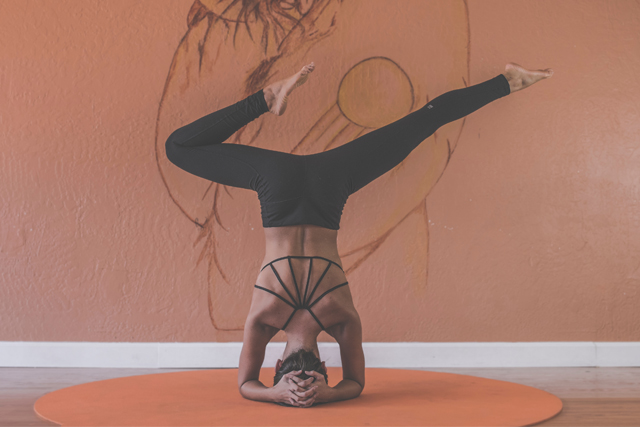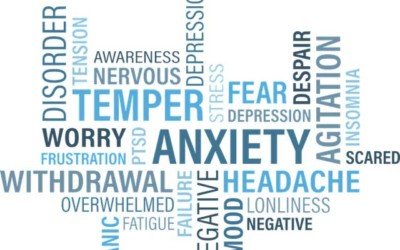Life is full of moments that cause us to feel stressed or nervous. Getting up and speaking in front of a large group of people, starting a new school, and trying to ace that important job interview – all of these scenarios can make us fearful, resulting in sleepless nights and performance jitters.
The problem starts when this fear becomes persistent and overwhelming and interferes with everyday life. At this point “normal fear” becomes a full-blown anxiety disorder.
While a certified therapist should be consulted to develop a plan for treating your anxiety disorder, yoga is an effective and natural way to get some relief from symptoms like trouble sleeping, muscle tensions, and chronic digestive upset.
Yoga, it turns out, can help control anxiety in a few different ways:
1. Yoga Builds Confidence
Anxiety can result from a lack of confidence in our ability to handle negative situations, either real or theoretical, that may arise. We are not so much fearful of public speaking as we are fearful that we are somehow going to “screw up.”
Yoga is a major confidence-builder because it works to strengthen the body and mind at the same time. The practice includes body postures and breathing techniques, along with ancient meditation approaches, and combined, these can help a person feel calm, centered, and able to handle any situation that crops up in their life.
2. Yoga Distracts Your Mind from the Negative Loop
What can you do when your mind seems to be stuck on an endless loop of negative and worrisome thoughts? Distract with other thoughts.
Yoga trains a person to focus their thoughts on the moment, specifically by thinking only of their rhythmic breath. As soon as the mind wanders to its typical negative thinking, the practitioner simply guides it back to the breath without anger or judgement. Feelings of calmness and acceptance naturally follow intense breath work.
3. Yoga is like Your Inner Therapist
Yoga is a wonderful compliment to therapy because, like your therapist, yoga helps you to observe how your mind works. And, also like your therapist, there is no judgement involved. Mediation is simply about paying attention to the thoughts you are having, keeping the thoughts that are helpful and releasing those that are harmful.
Yoga and meditation will also help you to train your mind to focus on the positive aspects of your life. When you surround yourself with positivity, the fear of negativity subsides.
If you or a loved one is interested in exploring treatment for your anxiety disorder, please contact me today. I would be happy to speak with you about how I may be able to help.

5 Ways to Cope with Anxiety as a Parent
The hard work and unpredictability that makes parenting so rewarding can also cause a great deal of anxiety. Here are some simple ways to bring yourself to a place of calm. Make a To-Do List Ruminating on worries can cause lots of stress. Clear your mind by making a...
How to Help Manage a Loved One’s Anxiety
When a friend or loved one suffers from anxiety, it can be intimidating or frustrating trying to help them cope. Panic and anxiety attacks can leave the anxiety sufferer feeling any number of symptoms, and you may feel helpless and unable to support them. Here are...
4 Healthy Ways to Distract Yourself from Anxiety
Anxiety is a natural dialogue between our mind and body. It’s a red flag that something might be going on in our surroundings that requires our attention. For most of us, anxiety is an uncomfortable but fleeting feeling that pops up on occasion during particularly...
Quick! Get Your "Top Tips For Getting the Most Out of Counseling" Cheatsheet!
Like some of what you've seen and want to see more? Sign up for our Mailing List for a free cheat sheet on making the most out of counseling. Our list members also gain access to exclusive specials and announcements, as well as the latest from our Counseling Blog!





